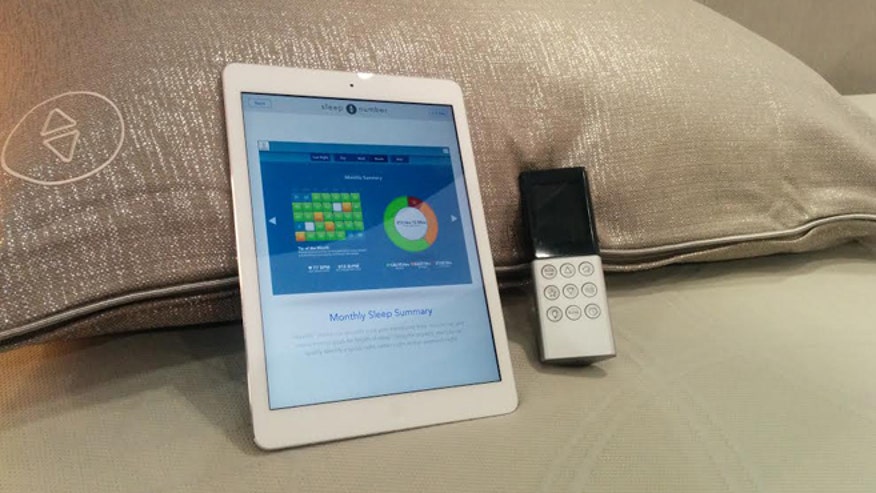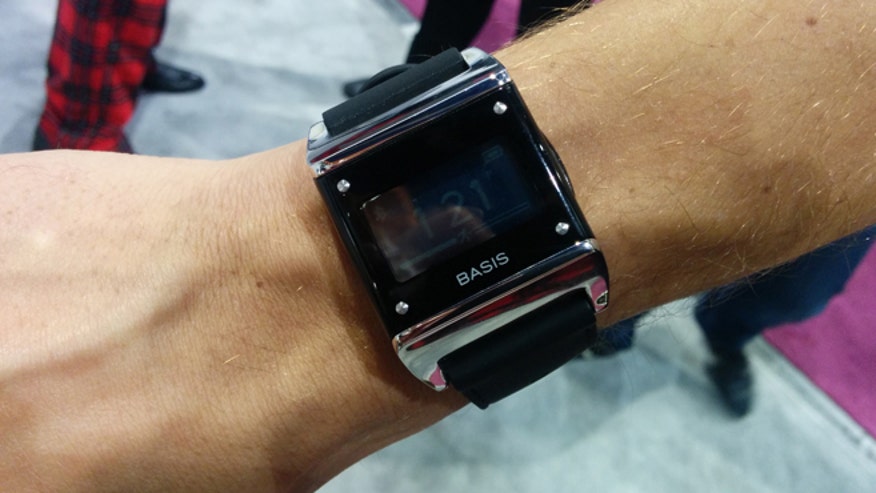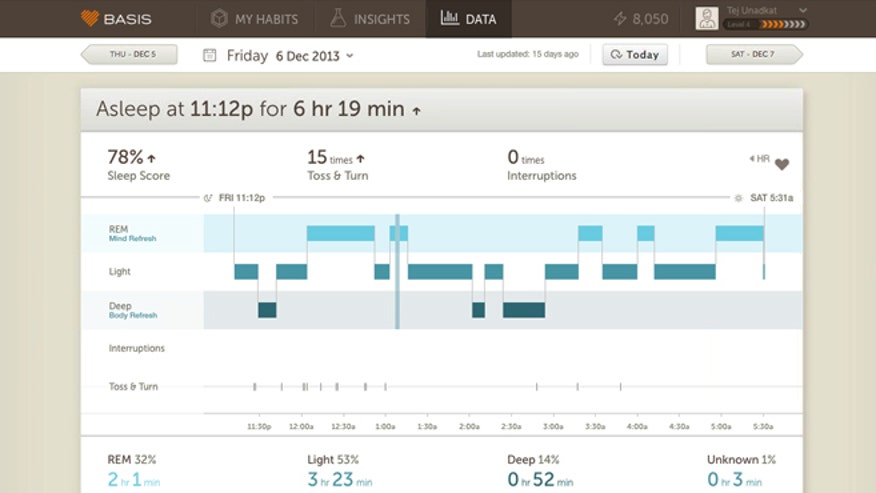Having trouble sleeping? There’s a device for that. In fact, there suddenly are quite a few.
New consumer electronics aim to analyze your sleep patterns, to learn when you enter deep, healing sleep — and potentially help you improve the quality of your slumber.
Sleep Number, maker of the “as seen on TV” adjustable bed, has unveiled a new connected smart bed that tracks the quality and duration of your zzzs in order to optimize how you sleep.
“It knows when you’re sleeping. It knows when you’re awake. It tells you straight up, here’s a good night’s sleep. Here’s a better night. And here’s an awesome night,” said Sleep Number president and CEO Shelly Ibach.
‘It knows when you’re sleeping. It knows when you’re awake.’
– Shelly Ibach
And it’s not alone. The Basis smart watch measures not just how many steps you take and your heart rate, but what happens to you while you sleep: It tracks when you enter REM sleep, how often you toss and turn and how long your sleep lasts.
What’s the impetus behind the new gadgets?
“We’re really trying to help you fully understand your work, your sleep, your life,” Basis CEO Jeff Holove told FoxNews.com. Like the wearable bands from Fitbit, Nike, Jawbone and more, the Basis device aims to improve your health through data analysis. But Basis claims to have far more sensitive technology built into its band than the competition.
“Others use accelerometers,” Holove said. “The Basis band has five sensors running 24/7. We’re really trying to get true biosignal data, true physiological data.”
Wear the company’s watch while you sleep and it can sense when you heave and roll over, and that info combined with your skin temperature, perspiration, heart rate and more provides a remarkable picture of your sleep pattern, data that once was available only through a visit to a fancy sleep lab.
The Sleep Number bed — it’s officially called the x12, and its monitoring tech is called SleepIQ — has goals similar to the $199 Basis watch, though it works very differently and costs dramatically more. The top-of-the-line model goes for nearly $8,000, although Pete Bils, vice president of sleep innovation and clinical research, told FoxNews.com the price is expected to drop dramatically in the near future.
Sleep Number beds have two adjustable sections (his and hers, so to speak), and an inflatable chamber in each can be precisely controlled: Lower numbers are soft and cushy; higher numbers are firm and offer more support.
Bils explained that by precisely monitoring the pressure on that air cushion, the company can sense much of the same data as the Basis watch. When you breathe, you press down on the mattress. When you toss and turn, you press down. Your very heartbeat alters the pressure. By taking 500 readings per second and passing the data through an algorithm, the company can tell what you do at night.
“We spend a third of our time in bed; it’s time to take the mystery out of that third of our life,” said Ibach.
And when you’re in bed and very deliberately not sleeping? Bils suggested that the privacy-minded might turn the feature off for the duration.
This may sound like imprecise science, but Sleep Number says the technology is rooted in real science, an algorithm from California health care company BAM Labs. The company founder was frustrated with the existing technology he was forced to use to monitor his son, who was born premature and had sleep apnea.
To be clear, neither device claims to solve your sleep problems, but both offer the ability to correlate behaviors with sleep patterns. The Basis, for example, will introduce you to simple actions you can work into a busy life to make a difference. Go to bed at a consistent time and your sleep quality goes up.
The Sleep Number x12 comes with a link to software that runs on an iPad or Android or what have you. A journaling feature (how much caffeine and exercise did you get?) lets you keep track of what you do and links it to how well you sleep.
“[It] will include tips and insights based on what you enter,” explained chief product officer Annie Bloomquist.
Neither company is collecting or storing the information. But the simple fact that they can gather it is intriguing in itself.
“Being able to see these things and find out how much sleep you’re getting hasn’t been possible before. And now it is,” Holove said.
Jeremy A. Kaplan is Science and Technology editor at FoxNews.com, where he heads up coverage of gadgets, the online world, space travel, nature, the environment, and more. Prior to joining Fox, he was executive editor of PC Magazine, co-host of the Fastest Geek competition, and a founding editor of GoodCleanTech.




